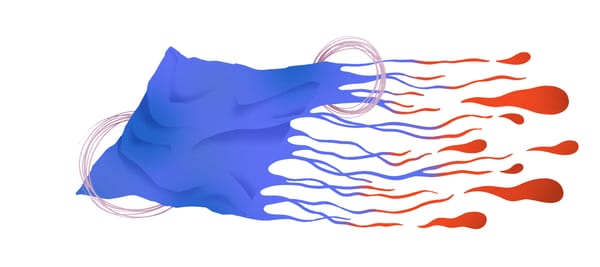Out the Front Door
by Beverley Stevens | Making a fuss.

“There must,” I said to my three siblings, “be a back exit.”
But a mental scan of the corridor outside revealed no discreet service lift. Just a series of hotel-like rooms in one direction and, in the other, the common living and dining areas, past which were the large lifts down to the ground floor and the car park.
What a terrible design for a nearly new, purpose-built rest home. Mum would have to be wheeled out of her room to the waiting hearse, past everyone awaiting the same end.
Already, a card depicting a dragonfly, a symbol of transformation signalling the demise of the resident within, had been attached to the closed door of her room. While Mum lay there like a statue, bedclothes pulled up as if asleep, holding a white floret placed in her hands by a nurse, we packed up her clothes and scant remaining collection of photos, pictures, and ornaments, so we need not return another day. We are a pragmatic bunch.
When the undertaker arrived, the four of us followed the trolley bed, then the nursing staff—Māori, Filipino, and Pākehā (European New Zealanders like us)—merged in quietly behind to form a small procession. As we approached the communal area, my stomach tensed and my breathing shallowed. Impossible to get through without being noticed.
But as we entered, everyone stood, or at least all those who could, in silence or calling “Goodbye, Joan” in gentle farewell to our mother, although she had lived there for only five weeks. An elderly man tipped his cap.
Down we went in the lift and into the main foyer. There, the managers, the front-desk assistants, and the carers were gathered, standing, waiting.
As we neared the wide glass front doors out to the waiting hearse, my sister Gill called a stop. I exchanged wide-eyed, panicked glances with my other sister. What now?
Gill stepped forward and thanked everyone for their care of our mother. Her children’s father is Māori, so her children—our mother’s grandchildren—identify as Māori, she said, and she would like to sing a waiata. Other voices joined hers in the well-known tune as she sang, “Te aroha, te whakapono, me te rangimārie, tātou tātou e.” Love, faith, and peace, be amongst us all.
We sang along too, chastened that we’d wanted to whisk Mum away, smuggle her out like a bag of rubbish on its way to the dump, rather than seeing her out the way she’d come in, through the front door.
Beverley Stevens is a Kiwi writer based in Wellington, New Zealand, who is working on a memoir in essays. Her personal essays have been published in Sad Girl Diaries, Dorothy Parker’s Ashes, Landfall, and Headland, among others; she’s also had two craft essays published on the Brevity Blog. You can read them at designit.co.nz.
This essay is a Short Reads original.
From the archive
Nov 20, 2024
“The Wrong Family”
by Andrei Atanasov | Bad luck when it comes to pets. Nov 22, 2023
“Four Menus”
by Sheila Squillante | How to feast.
Want more like this? Subscribe to Short Reads and get one fresh flash essay—for free—in your inbox every Wednesday. Or become a supporting subscriber and help us pay writers.






